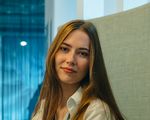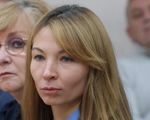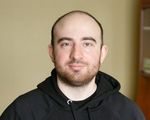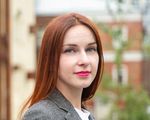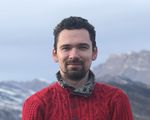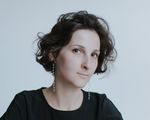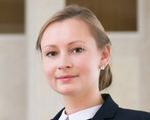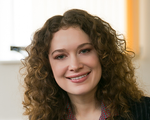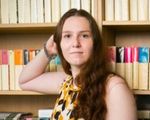About Success Builder
How do you find your place in life? How do you find something to do that both comes naturally to you and makes you happy? The answer is that you have to apply the knowledge you’ve gained from university and from life itself correctly. The Success Builder Project features HSE University graduates who have discovered themselves through an interesting business or an unexpected profession. The protagonists share their experiences and lessons learnt and talk about how they’ve made the most of the opportunities they were given.
Education is an ever-changing field. Which changes await it in the coming years? Why try to increase ‘awareness’? How does geometry help school-age minds? Polina Maltseva—who helped launch the Letovo International School project and is now creating a city from scratch for the Ascon Group—spoke about this and many other questions.
Your educational path looks very well thought-out—ICEF, London, McKinsey, a Harvard MBA.
While studying at HSE, I realized that I liked consulting. I began thinking about where to enrol to move in the right direction.
First, friends and I reactivated the Case Club as an alternative to the theoretical knowledge we had received during our studies. We started meeting in the evenings to discuss Harvard case studies. We invited knowledgeable people to speak—parents of our acquaintances, friends of friends and recent graduates who worked in consulting. They enabled us to get a sense of the industry and understand it correctly. I realized that I liked solving strategic problems and settled on the direction of my career.
Does this mean you helped found the current Case Club at HSE?
Many people helped found the Case Club. It all began when about 40 upperclassmen started holding informal meetings and then left their brainchild to us after they graduated. During my third year at HSE, I talked a dozen fellow students into helping me manage the club. We decided to expand it to the size it is today. The first of those meetings for HSE students attracted 300 participants each. Later, other universities, and then whole regions wanted to join. At the same time, the National Championship was developing. That began as a local initiative of students from several universities and grew into a major project with sponsors and thousands of participants from across the country. From that project grew the Changellenge campaign headed by Andrei Alyasov, who was part of our original group of volunteers. We invited the directors of Russia’s best companies to our Case Club activities. The heads of S&P Russia and CIS, the McKinsey director and many others came and spoke, making us the first and largest student business organization in the country.
Once you got a handle on the profession, you went to London to study consulting?
I wanted to get hands-on knowledge in the field. I chose the Management Strategy programme because it was the closest thing to consulting. I was much less interested in advanced financial disciplines or theoretical advanced economics that in microeconomics, industrial economics and mechanisms for the overall management of projects and companies.
How did you get a job at McKinsey?
I submitted my resume through the company’s London office and had an interview just as I was starting my Master’s study. When I received a job offer midway through the programme, I quietly prepared to start work at their Moscow office.
I was in London when the crisis began in 2008 and I had the absolutely incredible feeling that I was at the epicentre of events!
The heads of all the global corporations came to our campus and tried to analyse with us what had happened and where their industries would go from there. I returned to Moscow at the highpoint of the effects of the crisis, at a very interesting time to start working in consulting: companies were focused on reorganization, changing strategies and launching new breakthrough approaches. This became my favourite type of project.
Why didn’t you stop there, but instead chose to earn an MBA?
I had worked at McKinsey for three years, a standard point for choosing the next step: either you get an MBA or you continue without a break to work at a new career level. I had already had a transformative life experience in a new country where I had discussed business problems with the best professors and the global business elite. I really wanted to experience that again, but now at a different level of awareness. Because McKinsey pays for tuition, I enrolled in the Harvard Business School, the leader in managerial and strategic studies and an ideal match for my interests and ambitions at the time.
Does industry knowledge affect your status in the labour market?
Any extensive expertise will certainly put you more in demand. In consulting, there is a clear structure of projects. They are divided according to industry and function or by the type of task. This provides an excellent basis for understanding how to build a career. For example, you can love finance and focus on different functional tasks of that industry. Or you might like specific functional tasks and work on those at ever more advanced levels. I was attracted by strategic management as a whole and by resolving new and complex tasks such as entering a new market or building a new function.
From chaos and uncertainty, you create something useful and important
This led to me specializing in consulting on strategic projects and those related to the restructuring of companies and the launching of functions or completely new ideas, as with the Letovo School project.
How important is an MBA to professional development?
There were three basic advantages for me having an MBA. First, we studied many new topics: there is a different level of development and management in the U.S. industry. That is, things we never encountered in Russia were actively used there—in investing, creating start-ups and transforming industries, studying management style, and in the approaches to building companies, in operational models and corporate culture. We had to consider many questions—ethical, cultural and legal—from a completely different angle due to the different environment and approaches.
Second, I was surrounded by fantastic classmates—900 people, each with a unique history, accomplishments and character. The school brought together the best young professionals from a wide variety of fields: from Olympic champions and successful entrepreneurs to people who had raised millions in their charitable organizations and individuals who had worked in various fields I had never encountered before—civic organizations, the army and intelligence.
Your environment changes your perception of the opportunities you have and the risks you face. What seemed radical before becomes realistic and desirable
But I was most influenced by an incredibly brilliant course on personal motivation called Authentic Leadership Development. It helped me discover what type of professional I was, what was important to me in my professional work. It really helped me expand my picture of the world, to understand my priorities in life and to rethink my personal limitations and the tools for a productive life.
Do you think it would have been impossible to develop those skills or understand yourself as a professional without that MBA?
There is a large vacuum in our educational system in terms of developing skills and awareness of life—including professional life. You can read books—for example, our MBA course is based on the book ‘True North’ by Bill George. But that will only be valuable if it is linked to life experience. It is important to devote time to reflection—that is, on sorting out important issues by yourself, with partners or with friends. This makes it possible to anticipate mistakes and work out solutions years in advance. You need to use internships and freelancing as much as possible to determine your professional interests. Now, almost all large companies give HSE students such opportunities.
How did the Letovo project come about?
Consultants rarely deal with private education. McKinsey’s level of expertise and price tag usually attract major companies in mainstream industries that are guaranteed to quickly earn back their investment in a project several times over. There are few companies of this level in education and the overall size of the industry does not compare with those in the main sectors of the economy. When Vadim Moshkovich approached [McKinsey] with his project to create a school, the few consultants who had experience in educational projects were invited to participate. After all my projects at the university, this was my first experience in school education and also my last project before leaving for business school. I first carried out the main aspects of the project while working for McKinsey, and after finishing my MBA, I went directly to Letovo and worked there for four years, implementing the concept and carrying the project through to the school’s opening.
When we began in 2012, the task was to come up with a concept for the school. We had to understand what constituted a ‘good school’, what were the best practices in Russia and the world, how to bring those elements together into a single solution and how much investment was required for these tasks. It was an entirely private initiative: the school is a project of just one benefactor and there was no precedent for it in the field of education.
After calculating the overall economic model for the project, we arrived at the annual cost of tuition for one student: 1.2 million rubles—an astronomical sum for the average Russian
It was clear that most of the children would need financial assistance or even full scholarships. We formulated the school’s mission: ‘To enable Russia’s best students to receive a world-class education.’ To accomplish this, Moshkovich established a charitable foundation that provides gifted students with the financial aid they need. Only a handful of schools in the world recruit students without considering the financial situation of their families. Those that do pursue the highest educational mission and I am happy to have been involved in creating such a school in Russia.
What role did you play in the Letovo team?
The school needed someone with a head for business who would be responsible for the work plan, budget, assembling a staff, as well as implementing all of the business-related tasks from marketing and IT to finances and overseeing the construction of the campus. My position was called ‘director of operations,’ what they refer to in the West as the ‘school president’. I began working in this capacity in the summer of 2014. Together with School Director Mikhail Mokrinsky, who was responsible for all the substantive and academic tasks, we completed the project in four years.
Why so long?
As a rule, schools do not have the resource freedom that we had to devote sufficient time to thoroughly working out the concept prior to launch. We had the liberty of putting four years into the preliminary work and immersing ourselves in the details of educational issues.
We spent more than six months studying the boarding school model, from the design of the buildings to internal processes. And, we spent several years creating a system of professional development for teachers.
We also developed unique IT products such a system enabling several thousand schoolchildren across the country to take exams simultaneously under virtual supervision. There were many such conceptual developments.
What makes Letovo ‘innovative’ in terms of Russia’s educational system?
Not a single school in Russia provided in-depth academic knowledge while also developing students’ non-academic interests. We also wanted to give children the maximum possible freedom in determining their academic path. The world’s best schools offered excellent examples of leadership programmes, plenty of opportunities for creativity and the development of athletic interests, as well as many examples of teamwork and research activity.
On the other hand, we set a practical goal of giving matriculating students the choice of preparing for universities in Russia or abroad. That meant the school’s diploma and the level of preparation for future graduates had to comply with the requirements of foreign universities. That presented us with a unique challenge. For example, England would not recognize our programme as providing a complete education because, in that country, students study for 12 years, with the result that Russian students must take an additional ‘foundation year’ before entering university there. The situation is a bit simpler regarding U.S. universities, but another difficulty arises there: American admissions officers give significant weight to students’ extracurricular activities, an area in which Russian students are almost entirely lacking.
At Letovo, we set out to create a top-tier international educational program and to enable each student to build an individual portfolio
This approach makes it possible to get into the best foreign universities without compromising the quality of the Russian programme. We were the only school to set such a goal.
What important and useful things did you draw from the Russian educational system?
Russia actually has many good schools, experts and specialists whom we interviewed. This was important because we did not want to build the best international school in Russia strictly according to Western principles. We wanted to build the best school—period. That’s why it was important to use everything the Russian educational system could rightly take pride in. Traditionally, Russia has a very systematic approach to the exact sciences. For example, school-level geometry is not taught as a separate subject almost anywhere in the world, although it is extremely valuable for developing the brain, logic and critical thinking skills. Also, if you don’t elevate it to the rank of a cult, Russia’s system of Olympiads for the various school subjects provides students with many opportunities to develop their thinking and cognitive abilities.
Russia has a number of Teachers with a capital ‘T’. Students who were lucky enough to have such teachers had unforgettable experiences that transformed their lives.
We wanted to preserve all of that as well, but at the level of the school’s system.
One of the trends in the educational market is the introduction of computer technology. Which other new trends exist?
For the last 10 years, people have actively discussed how best to present materials to students. What, in general, is meant by ‘presenting materials,’ and should we do it if students can master the theory on their own? Some time from now, Google Glass or the next versions of Alice or Siri will be delivering all those facts, and in 50 years, microchips implanted in our bodies and artificial intelligence will supply this information. For this reason, knowledge or information itself cannot be the focus of modern education. Developing skills and the practical application of that knowledge are the new priorities, and these require different educational methods, different teaching methods and different tools for measuring the results of the learning process.
The other new area is the individualization of education. The ‘assembly line’ approach to education is becoming outdated. Of course, if there are 30 people in a class, it is extremely difficult to customize the experience. But the teacher’s task is to find a way to take an individual approach to students during the lesson by applying IT solutions and various group and individualized formats.
Digitalization will prove very beneficial for education. Technologies have endless potential in this regard and many world experts are now thinking about how to apply them correctly.
Why lecture at the blackboard if students can watch the same thing on YouTube and solve practical questions with the teacher in class?
This technique is already used in schools, including Russian schools, and is called the ‘inverted classroom’. But these innovative approaches alone are far from enough to achieve all educational goals. The education industry is undergoing major changes now. At Harvard, we had a course on management for industries in flux that was taught by Clay Christensen, one of the world’s foremost gurus on transforming companies and industries. He has long said that education is going through fundamental changes. People now obtain a huge amount of information online. These changes are most evident in corporate and university education, but will soon affect schools as well.
The last trend I would like to mention is the fragmentation of information and educational institutions. The modern world presents us with increasingly fragmented and clipped pieces of information and knowledge. Accordingly, we make the counter-demand that education provide us with concentrated ‘knowledge chunks’ and that we design our own educational path. This is seen in the appearance of more play-based formats offering quick results, the fragmentation of courses—such as the map of math options on the Khan Academy online platform—and the growing demand for short videos and articles that you can study in 3-5 minutes.
Why did you decide to leave Letovo and what are you doing now?
My task was to open the school and solve all conceptual issues. Once this happened, I began looking for opportunities to apply my expertise both in education and in the overall management of complex projects and companies. Now I am working on a project to develop the educational concept of a small city. This is a new line of business for the Ascon Group. I work directly with Group founder Vladimir Sedov and the Dobrograd director. This is essentially a project to build a city from scratch. I have to identify and develop the values for the residents of this city so that a person understands to where is moving, where he will work, develop and relax, what he can do on the weekends and where his child will go to study. This is an opportunity for me to consider education from the broadest possible perspective—from instruction for toddlers to courses in longevity for senior citizens—and to create the culture of the city. The task is very interesting and complex—the kind I like to solve.



